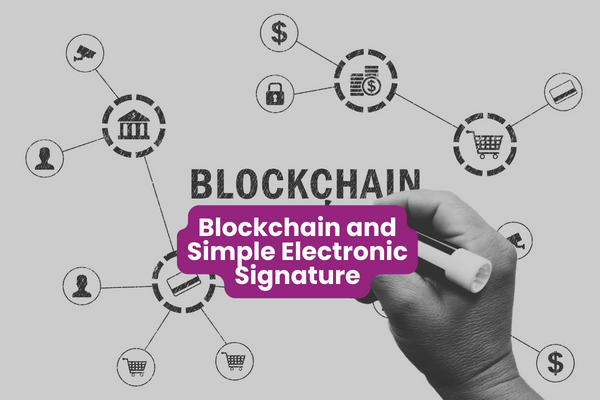Legal validation of Blockchain for simple electronic signatures

"Electronic signature solutions based on blockchain technology can now be legally recognized as simple electronic signatures. As such, they can be used for numerous everyday and business transactions, such as signing an employment contract, a lease agreement, or issuing a quote".
These two statements are not from us but come from a prestigious law firm that has recently thoroughly examined the issue.
For over 15 years, Coexya has been acting as a consultant and integrator in the electronic signature market. Over the years, we have seen many innovations and different approaches to timestamp documents and obtain signatory consent, initially on tablets at points of sale and then online in complete autonomy. The needs, as well as the solutions, continue to evolve over the years and with progress, requiring adaptability.
Regarding electronic signatures, it took time, trials, and errors, and several legislative texts, including the famous European eIDAS regulation voted in 2014, to reach a market consensus on the use of so-called PKI (Public Key Infrastructure) infrastructures. These rely on calling on trusted third parties and issuing certificates. Since then, the vast majority of simple electronic signature providers in the market offer services based on this approach, although the law itself is not specific about the use of these PKIs.
Ten years after the release of the eIDAS regulation, the technological evolution of distributed ledgers has made it possible to be faster, more transparent, more efficient, and also cheaper than solutions based on chains of trusted third parties. Public blockchains such as Bitcoin, Ethereum, or Tezos have proven their ability in recent years to sign, timestamp, and store data in an extremely secure manner. It is not without reason that several billion euros of transactions take place on these blockchains every day. Trust in the protocol and application code prevails, "the code is law". This technology provides the necessary security to offer much more direct and efficient digital proof and electronic signature solutions than older processes.
In 2014, the distributed and secure technology of blockchain was only known to a handful of experts, and its current success was far from obvious. Logically, market providers turned to proven solutions, such as the use of certificates, already well-tested. By replacing trusted third parties, their proprietary timestamping servers, and their non-nominative certificates with a public blockchain, operating in an open-source, transparent, and ultra-secure manner, we assert, just like this law firm, that documents signed by the Tediji solution by Coexya cannot be dismissed as evidence in court simply because the signature is qualified as "simple". We are extremely proud to see that Tediji has been proving its worth for over a year now, serving its thousands of users every month.
While "simple" signatures cover the vast majority of everyday needs, we must nonetheless remind that the current eIDAS regulation also describes what it calls "advanced" and "qualified" signatures, required for specific use cases. We regret to note that our use of blockchain cannot meet the needs for "qualified" signatures (used, for example, by notaries or when signing public contracts) due to an eIDAS text that is too specific in its technological vision. However, we are confident that the overhaul of the eIDAS regulation, whose version 2 is expected very soon, will finally consider the topic of distributed ledgers, which was on the agenda of its preparatory work.
The topic of "advanced" electronic signatures on the blockchain, whose very definition is open to interpretation, will be addressed in a future point as it deserves its own analysis. In the meantime, do not hesitate to contact us to learn more about the elements that led the mentioned law firm to these very positive conclusions regarding the approach followed by Tediji.
(1) eIDAS https://en.wikipedia.org/wiki/EIDAS
(2) Public Key Infrastructure https://en.wikipedia.org/wiki/Public_key_infrastructure